Director: Martin Campbell
Cast: Jackie Chan, Pierce Brosnan, Michael McElhatton, Charlie Murphy, Liu Tao, Orla Brady, Katie Leung, Manolo Cardona, Simon Kunz, Pippa Bennett-Warner, Roberta Taylor, Dermot Crowley, Niall McNamee
Running Time: 113 min.
By Paul Bramhall
The last time we saw Jackie Chan in London was 14 years ago, hanging from the clock face of Big Ben with Owen Wilson in Shanghai Knights. In 2017, he’s back in the British capital, but in a decidedly different kind of movie. While it may be a long time since his last visit to British shores, it certainly hasn’t been a long time since he appeared on the big screen. The Foreigner marks the 3rd time for the 63 year old star to headline a movie in the last 12 months, following on from Railroad Tigers and Kung Fu Yoga, with a 4th in the form of Bleeding Steel just on the horizon. Far from slowing down, if anything the man who’s broke almost every bone in his body seems to be making more movies than ever, with no sign of quality control in sight.
Out of all his recent productions though, it’s The Foreigner that warrants the most anticipation. A co-production between China and the UK, the movie is based on a novel titled The Chinaman by Stephen Leather (which, for full disclosure, I haven’t read) and is directed by Martin Campbell. While in today’s superhero dominated climate, Campbell may be remembered as the guy that helmed the disastrous 2011 version of Green Lantern (and indeed The Foreigner is his first theatrically released movie since then), to view his full filmography is to understand that his venture into the DC universe was just a small blip in an impressive career. Campbell was also the guy that essentially revived the 007 franchise twice – first with Goldeneye in 1995, and then again with Casino Royale in 2006. He’s a director that knows how to deliver if given the right material.
The Foreigner also provides Campbell a reunion with his Goldeneye leading man, Pierce Brosnan. The former 007 is given a chance to return to his Irish roots in Campbell’s latest, as a former IRA member turned peace keeping politician in Belfast. Brosnan’s character is a man under fire, to put it lightly. After a bombing in London by a rogue IRA cell leaves Chan’s daughter dead (a rather thankless role played by Harry Potter’s Katie Leung), he soon finds himself constantly harassed by the ‘Chinaman’ demanding to know the names of the bombers. But Chan isn’t his only problem – his headstrong wife may be on to the affair he’s having, and indeed may have some secrets of her own, there may also be double crossings afoot in his own close circle of former associates, and all the while he’s being leaned on heavily by the British government to aid their investigation.
As a result of this, Chan’s grieving father sometimes feels sidelined by the story, and indeed there are stretches in which he doesn’t appear at all. But somehow Campbell makes it work, with Chan’s character an intriguing wild card to Brosnan’s political wheeling and dealing. Chan is equally as conflicted as Brosnan, and his pursuit of vengeance at times makes him as much of a terrorist as those who planted the bomb in the first place. When he first confronts Brosnan in person, his stubborn refusal to accept that Brosnan doesn’t know who planted the bomb (he really doesn’t) and is unable to help, leads to a moment in which he calmly states “You’ll soon change your mind.” Not only is it possibly the most non-Jackie Chan moment to ever grace the screen, the fact that he then goes on to plant a homemade bomb in the bathroom of Brosnan’s office is basically a terrorist act in itself. This is a movie where Chan means business, serious business.
The above description amounts to a movie which sees two parallel plot lines on a crash course with each other. One has Chan as a man who has just lost his only surviving family member, having suffered a life of brutal hardships, pushed over the limit to a point where he decides to take the law into his own hands. The second is about Brosnan the ex-IRA man turned politician, who is juggling so many flammable objects at once, that it only feels like a matter of time before one of them sets him on fire. The part that keeps us gripped is sticking around to see which one it’s going to be.
These two parallel storylines are also what provides The Foreigner’s ‘exclamation marks’ if you will. For Bronsan, these manifest in a career best performance. The constant taunts from both former associates, and his own wife, of how he’s lost the edge that he had when he was still part of the IRA, result in some genuinely seething moments of anger that drip off the screen. When these scenes come, Brosnan comes across like a ticking time bomb of violence, and using only dialogue there’s a palpable sense of danger behind the words. For Chan, these moments come in a trio of brief but suitably impact heavy action scenes.
It needs to be said that Chan is a revelation here. We know what to expect from his choreography by now, and in that regard you won’t see anything new in The Foreigner, but under the guidance of a director like Campbell, he’s tweaked his action aesthetic to fit into a setting that’s both gritty and violent. For fans checking in for his physical performance, as mentioned he gets a trio of brief scuffles – two are one-vs-four, and the other is a one-on-one (note it’s not the finale). Don’t expect to see the Chan from 30 years ago, he’s not playing that type of character, nor is he at the age where he should be playing that type of character (Stanley Tong, I hope you’re reading). But the good news is that each one has Chan’s stamp all over them, proving that yes, this is someone that understands how to adapt action choreography to both their age and the genre. Amazingly, the physical dexterity is still there in his 60’s, with no (obvious) wires in sight, so sit back and enjoy.
However this is a movie in which Chan is not just called in to provide comedic kung fu beats or be a wisecracking sidekick. His character is intrinsic to the story, and so needs to be at least on par with Brosnan. Despite having less screen-time, thankfully he delivers in every aspect. For those who have been waiting to see Chan in a serious role since 2009’s Shinjuku Incident (I’m going to be controversial and not count Police Story 2013), then this is the movie that grants your wish. Admittedly it’s possible to nit-pick, as you could easily say the frail figure that he cuts at the beginning of the movie doesn’t match his sudden butt kicking skills when they’re required, but even this is explained in a backstory (if you’ve seen Taken or The Man from Nowhere, you know the deal).
Perhaps the element I most enjoyed in The Foreigner was seeing it turn into a kind of First Blood in British Woodland, as Chan takes to camping out in his foliage covered van, close to Bronsan’s countryside property. It’s safe to say no one ever expected to see a Jackie Chan movie in which he plays a kind of Rambo on the trail of an Irish terrorist, but the fact is that these sequences are exceptionally well done. Broadly speaking this notion applies to the movie as a whole, with the action sequences displaying a refreshing lack of CGI. Both of the significant explosions in the movie (one of which takes places on a London bus, which notably residents of London thought was a genuine terror attack during filming) are done for real, and it shows in the well placed aftermath shots that simply can’t be re-created with CGI.
Combined with the pulsating synthesiser score and perfectly paced direction, The Foreigner is a winning combination for everyone involved – especially Martin Campbell, Pierce Brosnan, and Jackie Chan. Sure, there may be stretches that consist purely of Brosnan drinking whiskey and starting every line with “Jesus Christ!”, but somehow it all moulds together to provide a satisfying whole. I have no doubt there’ll be a demographic out there who will argue Chan’s screen time wasn’t enough, and who knows, they may be right. However as an action thriller, it can’t be denied that The Foreigner delivers. Watching the movie as a Jackie Chan fan myself, I’ll simply say that the reason why it works so well is because it’s not a Jackie Chan movie, but rather, it’s a Martin Campbell movie with Jackie Chan in it. Welcome back.
Paul Bramhall’s Rating: 8.5/10

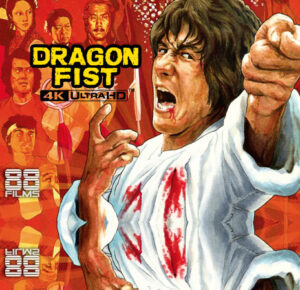
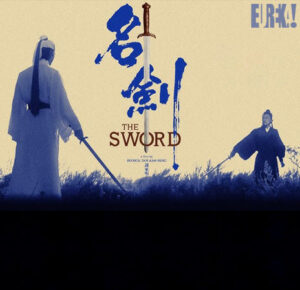
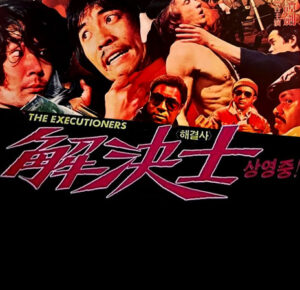
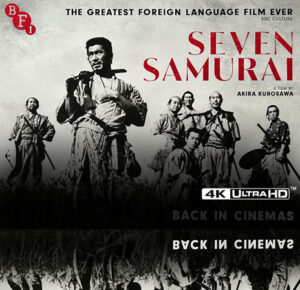
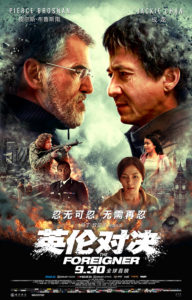

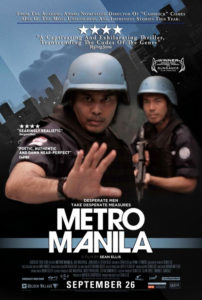
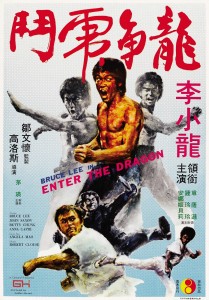
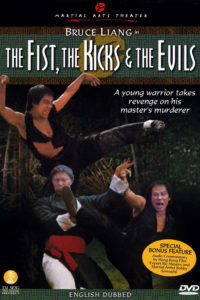
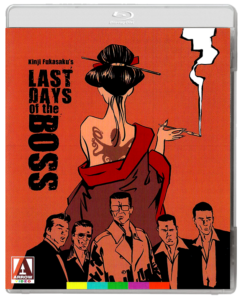

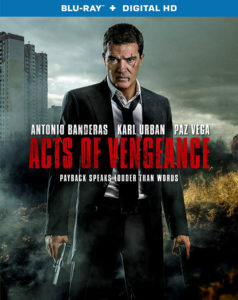
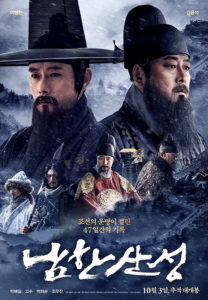
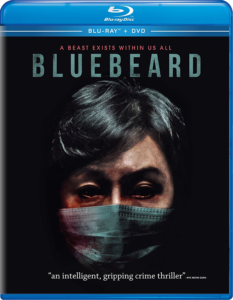







20 Comments